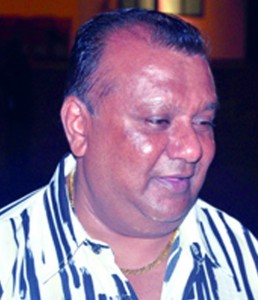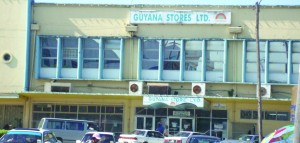– shareholders express concern about the entity’s operation

The trial continued on Friday on the legal action brought by government against the Guyana Stores Limited (GSL) majority shareholder, Royal Investments Inc to recoup outstanding sums following the privatisation of the company.
The legal action for non-payment of US$2 million plus interest dates back to the privatisation of GSL in October 2000, almost 12 years ago. Under the terms of the privatisation agreement, the balance on the purchase price of US$2 million was due by September 2002. However, Royal Investments Inc, which owns 70 per cent of the company, failed to make this payment. In June 2004, the government holding company, the National Industrial and Commercial Investment Limited (NICIL), initiated legal action against Royal Investments Inc for recovery of US$2 million plus interest.
The trial of the matter only started in late 2010, and is currently ongoing before Justice Roxanne George-Wiltshire.
On Friday, NICIL Executive Director and head of the Privatisation Unit Winston Brassington continued to be cross-examined by Rex McKay, SC, almost a year after the last court engagement. The trial will continue in September.
During the cross-examination, Brassington revealed that indeed GSL had contracted financing to assist in paying its dividend. However, Brassington insisted that this dividend was paid out of retained earnings/profits, and did not violate the Companies Act. Brassington noted that this was based on a May 3, 1999 letter issued to all prospective bidders to assume at the date of privatisation, a net working capital of no less than Gy$200 million, and inventory of no less than Gy$400 million. Further as per this letter, the Privatisation Unit stated that one or more dividends could be declared on or before closing (financial close).
Closing was revealed to be October 2000. Brassington insisted that while at privatisation in October 2000, the inventory was less than Gy$400 million and current assets was Gy$200 million by virtue of a promissory note, and an adjustment mechanism to this promissory note. These were made part of the Share Sale and Purchase Agreement.
The defence went into correspondence, in late 1999 and early 2000, from GSL that indicated that it was adjusting its working capital to meet the Gy$200 million target promised to investors, but this position and the imminent privatisation were affecting its business.

Following an April 2000 letter from GSL complaining about the impact of the privatisation and tight working capital, Brassington spoke of attempts by NICIL/government to conclude the privatisation quickly, and also to agreeing to have the loan repaid by NICIL and converted to a promissory note.
Brassington also indicated that NICIL had agreed to have severance paid to all employees wishing to leave GSL, to a cost of almost US$1 million.
The defence introduced as an exhibit, the GSL audited accounts for 2000, but Brassington said he had never seen this document. Towards the end of the almost two hours of cross-examination, counsel for the plaintiff Rafiq Khan of Cameron and Shepherd objected to this document being placed into evidence, for the same reasons that the defence objected to the audit report of Nizam Ali and Company being placed into evidence.
This audit report showed the adjusted net current assets of Gy$200 million at privatisation, and an adjusted promissory note balance of Gy$96 million being due by GSL to NICIL. On resumption of the cross-examination, the question of the 2000 audited accounts and the Nizam Ali & Company audit report, being placed into evidence, will be further examined.
Supporting the defence was Edward Lukhoo, SC. Also in the courtroom with the defence was Christopher Ram. Ram served as a consultant to Tony Yassin and Royal Investments during the privatisation. Also, in the courtroom was Marcia Nadir-Sharma, deputy CEO of NICIL.
GSL is a public company with over 1000 shareholders. Shareholders have lamented the fact that GSL has failed to have a shareholders meeting since privatisation. Shareholders have also not seen the audited accounts for the company since 1999. Following the court hearing on Friday, an observer commented that given the existence of the 2000 audited accounts for GSL, a shareholders meeting for this year can be called and that GSL should explain why it is keeping this report a secret. The observer hopes that both the audited position of GSL at privatisation and the position at the end of 2000 can be made public.
Auditor General Report






Comments are closed.